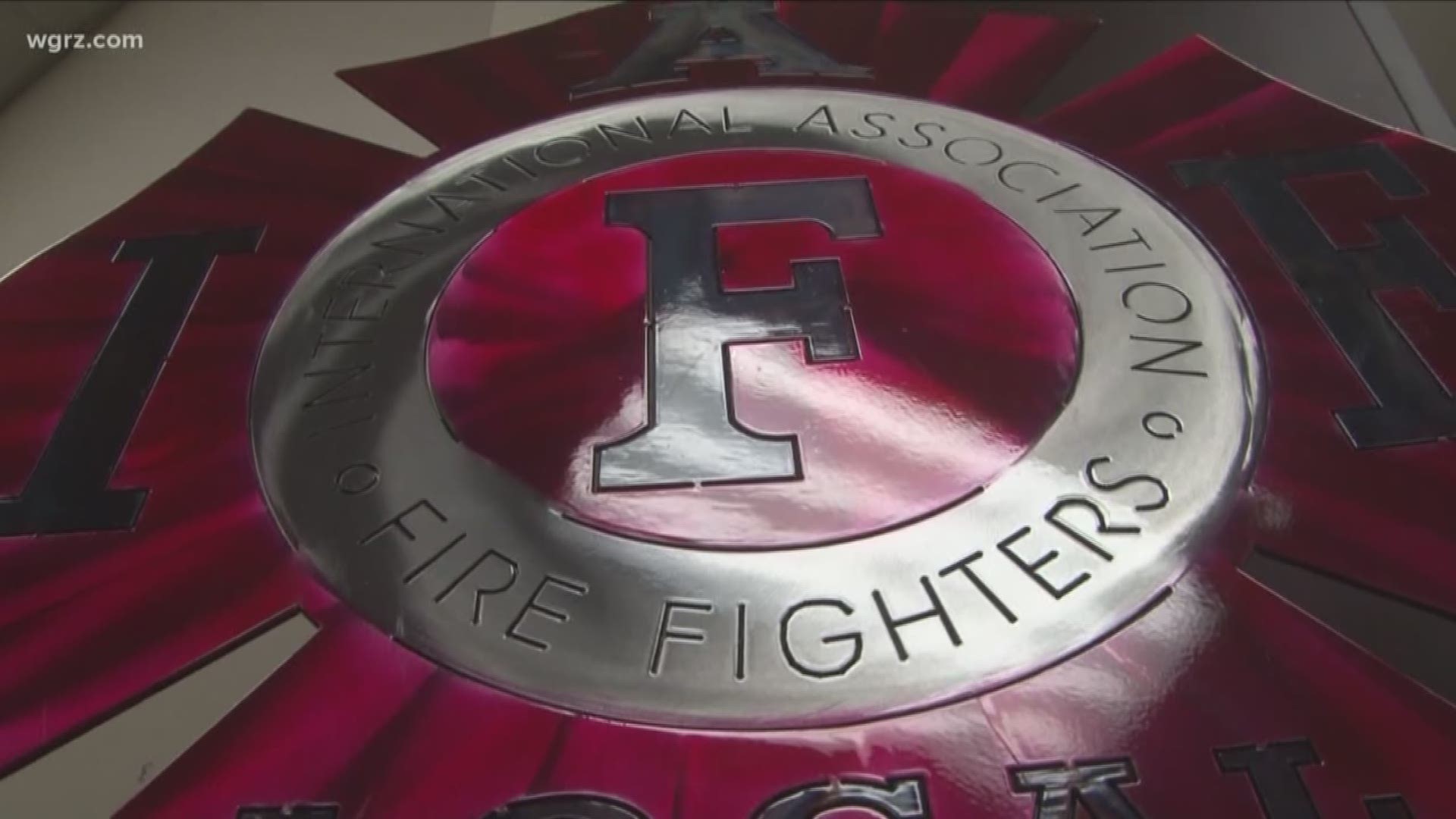Every day, Vinny Ventresca, President of the Buffalo Professional Firefighters IAFF Local 282, gets an e-mail with a list of names.
No matter how often he reads them, it never gets easier because these e-mails contain the names of firefighters who have died from cancer.
In his mind, Ventresca said, there's no doubt it comes with the territory.
"When I see members across the country dying in their 40s, 50s, and 60s from job-related cancers, it's scary because I feel like that's young," Ventresca said. "And it could've, or maybe would've, been preventable."
Ventresca's longtime friend and fellow firefighter, Patrick Stanton, or PJ as Ventresca called him, was diagnosed with brain cancer back in 2017. Ventresca described the moment he found out as being like a punch in the gut.
"PJ and I came on together, and when someone close to you has an incident or gets sick, its so much more," Ventresca described.
Stanton's diagnosis, level 4 glioblastoma multiforme, is considered to be one of the most aggressive and severe brain cancers possible.
Stanton never had any doubt he'd survive. It fit in perfectly with Stanton's stubborn personality said Ventresca.
"I was going to definitely be one of the people that survive," Stanton said.
Stanton's team was the first on scene in early 2017, as a large warehouse fire raged on Niagara Street near Rich Products.
He can still remember how yellow his new helmet was, until a massive explosion forced his team back out of the building, where he met a fellow firefighter in a nearby driveway.
"He's like 'Oh your whole entire face and upper body and shirt, coat, are all covered in black,' " Stanton said. "It hit us pretty good."
And that's the fire, Stanton said caused his first brain tumor. He's sure of it.
While getting his hair cut with a family friend, Stanton found himself unable to speak and answer questions.
Suddenly, he woke up in the emergency room at Buffalo General.
"And I see a room with my parents, my wife, and two doctors, and said 'What's going on in here? What's the deal? I've got to go to work,'" Stanton smiled sadly. "And the main doctor he said, 'Unfortunately, I mean to tell you, you're not going to work.' "
Stanton was forced to retire, and battle his cancer to stay with his wife and three sons.
But back in 2017, there was no definitive link to connect the fire with his brain cancer. 2018 is a different story.
Congressman Chris Collins' bipartisan bill officially became law on July 9.
Based on a 2015 National Institute of Occupational Safety and Health report, the new law will require the Centers for Disease Control and Prevention to develop, maintain, and analyze data on cancer cases of firefighters across the country.
Not only could it go a long way toward curing cancer, Ventresca said, but also toward preventing it before it hits.
"Curing cancer and stopping cancer once its detected is great, but the idea of how can we prevent it? That's really the way that we should be headed," Ventresca said. "I think that we are. That’s a good thing."
"It starts with collecting the data around the country, and most of them have been keeping this," Collins said. "If they've been in the fire company 30 years, they can back-fill 30-years worth of data."
No data in the world will bring Stanton out of forced retirement, though; but he still has his life, his wife, and his sons.
And Stanton’s life story, along with the stories of life and loss from countless other firefighters who weren’t so lucky, might go a long way toward protecting the young firefighters of tomorrow.

